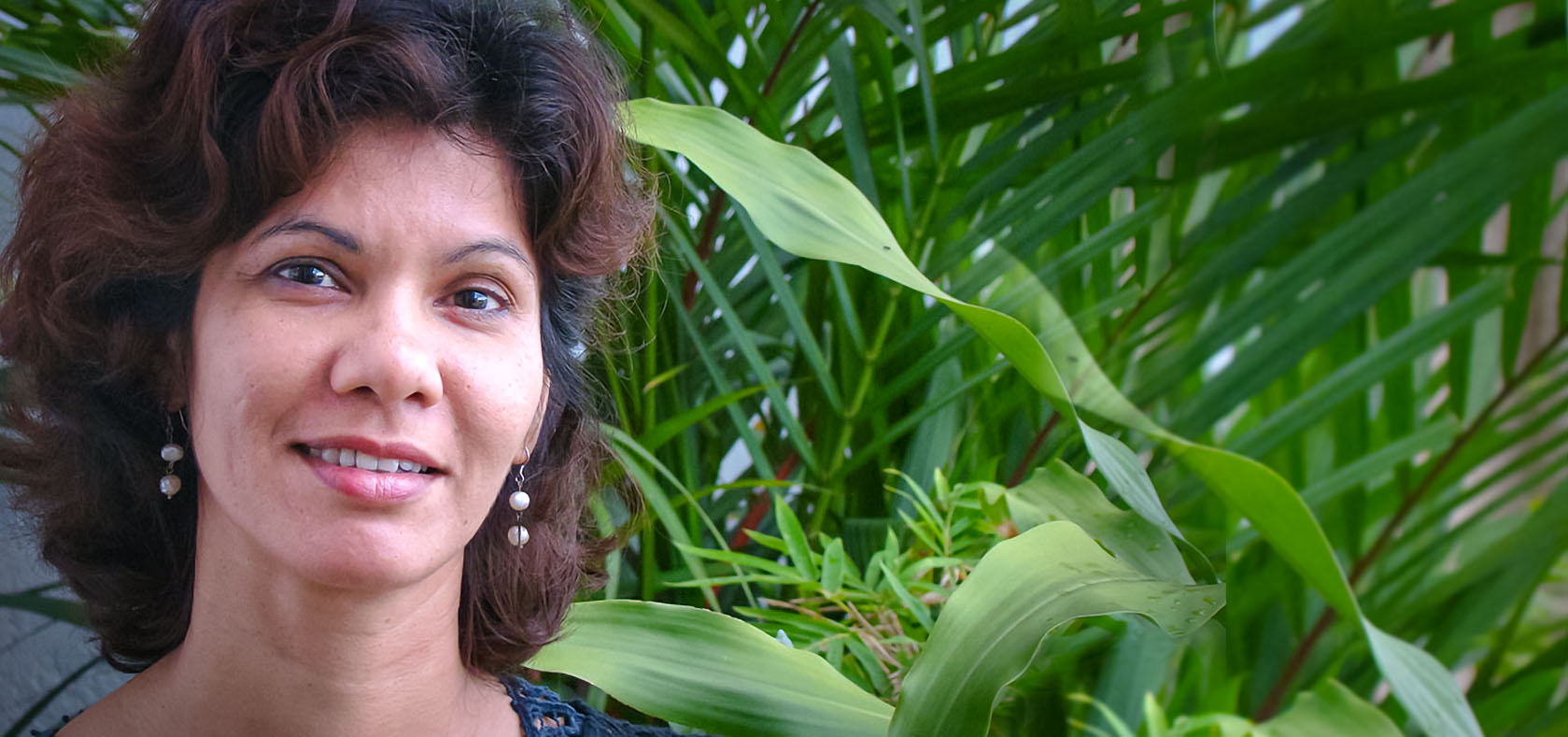I am Generation Equality: Shreen Saroor, women’s rights activist
Date:


I am Generation Equality because…
Three things you can do to become part of Generation Equality:
- Amplify the voices of survivors and victims of violence
- Create positive spaces to promote peace and reconciliation
- Join the #GenerationEquality campaign by sharing stories like this with your friends and social media networks
At the height of Sri Lanka’s civil war in 1990, my family was forcibly evicted from our home in Mannar, in the Northern Province. Those early years of my life were filled with experiences of war, violence, loss and resistance – I was resisting the war and atrocities committed against minorities. Shortly after the eviction, I lost my father. As the eldest child, the responsibilities within the family fell upon me. Those were turbulent times and I knew that I needed to stand strong.
In 1998, after completing university in Colombo, I returned to my hometown and joined forces with women’s rights activists, who were refugees at the time and had lost everything, including their right to education. I realized that I was privileged to have had a university education, and felt the need to serve my community. So, I ventured into the development field and started to fight for the rights of women through the Mannar Women’s Development Federation. From there on, there was no turning back – I became a defender of women’s rights.
The birth of a women’s rights movement
Women and children were particularly affected as the war advanced.
They suffered atrocities and children were forcibly recruited as soldiers. Children were born as refugees in their own country and this identity marker was leaving permanent scars. Tamil and Muslim women were constantly on the run, to protect their families, to protect their children, and to protect themselves.
“It is only by survivors coming together that strong movements are birthed”
They were displaced, moving from place to place, carrying whatever was left of their belongings in plastic bags as they travelled. There was seldom a sense of ‘home’ among them.
Many women leaders had disappeared or died, and their once vibrant women’s organizations became inactive. Thus, we initiated the Women’s Action Network (WAN) in 2009 to restart and re-establish the struggle for women’s rights and empower a younger generation of women’s rights activists.
Empowering survivors
A key principle that we abide by is not to take up the place of survivors, or speak on their behalf, but to empower them in their struggle for justice, and to help them only if there is a space to do so and if they want us to. Our intent is not to build an organization, but a women’s rights movement. And it is our strong belief that it is only by survivors coming together that strong movements are birthed.
We do not own the movements, we do not hold onto them, and we certainly do not take credit for them. This makes Women’s Action Network a proud collective of women, with our story interwoven with the issues of women in a post-war context, along with their experiences of resistance and aspirations for the future.
Women’s rights are human rights and must be defended
Do men struggle as much as women? Take the issues of microcredit, the elephant-human conflict, poverty alleviation, and loss of land, for example – women are the most affected. Throughout Sri Lanka, domestic violence has increased against the backdrop of the COVID-19 pandemic, and grave, unspeakable torture is perpetrated against women and girls in their own homes. Victim and witness protection for survivors of sexual and other forms of violence is lacking in the country. While national policies are in place, the implementation gap must be closed. There should be collective ownership to support and amplify the voices of survivors and victims of violence.
We also need to create positive spaces by bringing people together to collectively discuss cultural diversity and to promote peace and reconciliation. [Additionally], justice processes should not be mired by any interference.
As women’s rights activists, we are operating within constricted spaces. We are challenged daily to keep our fellow activists safe in a highly patriarchal context where a backlash against our work is imminent. But our struggle must go on because women’s rights are human rights, and must be defended.
Shreen Saroor runs the Women’s Action Network (WAN) in Sri Lanka, a collective of women’s groups that empowers and advocates for women and women survivors of war, violence and other injustices. As the Generation Equality Forum – a landmark event to catalyze rapid advancement on gender equality – approaches, she calls on leaders to close the gaps between policies and implementation. The Forum is convened by UN Women and co-hosted by the governments of Mexico and France, in partnership with youth and civil society.